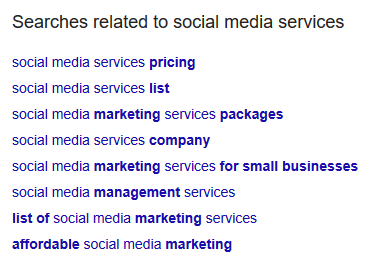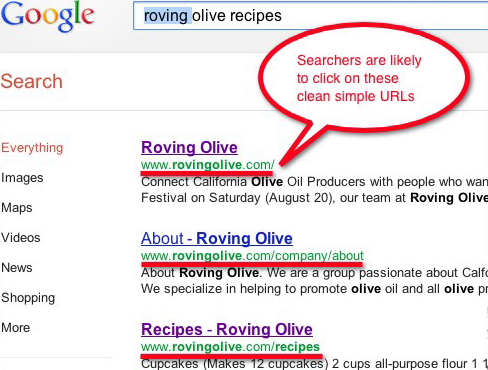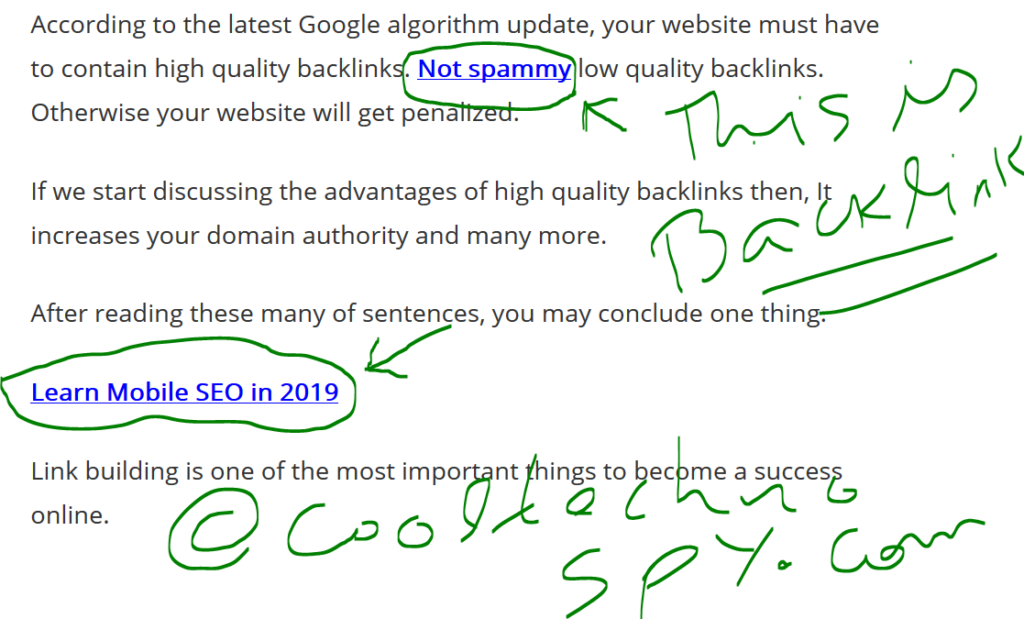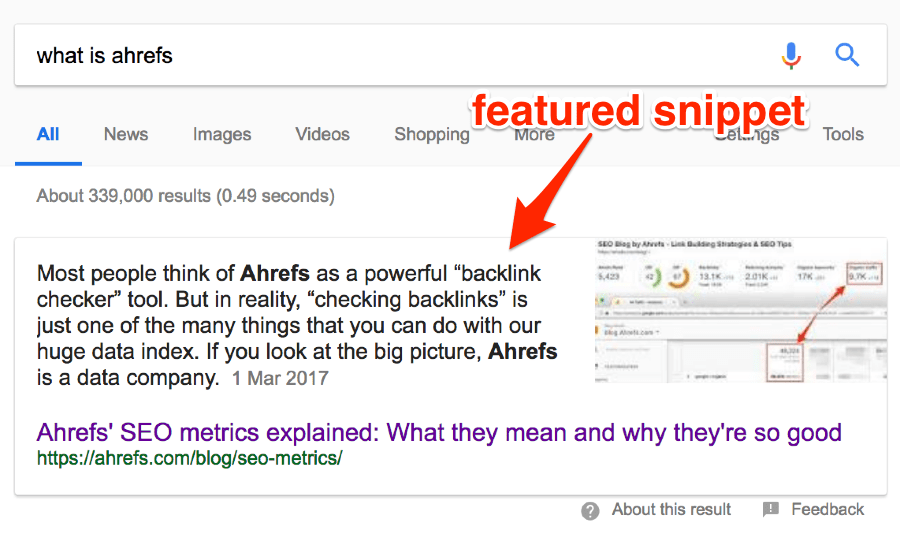You’ve probably heard of search engine optimization, even if you’re not a Digital Marketer. Whether you’re a small business owner or the CMO of a Fortune 500 corporation, search engine optimization drives business in today’s environment. It is something you can’t ignore.
The higher your website ranks for relevant search queries, the more visitors it will receive. After all, a staggering 75% of internet users never look beyond the first page of search results. So, to get traffic and thus visitors, you need to be there on the first page, and more than that, on that very top.
Boosting SEO performance is a major priority for 67% of content marketing professionals. Another 73% of marketers questioned in a poll indicated that they employed SEO practitioners and tools to improve their content marketing results regularly. This means that you must learn how to increase your search engine rankings to stay competitive.
Here are some SEO strategies and search engine optimization ideas that even beginners can use in their work.
1. Use Well-Researched Keywords in Your Content
Keyword research is at the heart of any successful SEO campaign. Great content comes up when it is based on the use of primary and secondary keywords. And as such knowing how to use keywords no follow web pages several strategically in the content will drive traffic to your site.
The main focus of your landing page should be your primary keyword. It should be a strong description of the page’s content and possibly relate to what your company does.
Secondary keywords are words that support the primary keyword and go into greater detail about the subject. You’ll likely enhance your search rank by integrating these secondary keywords in your text – in a way that reads organically, of course.
Start your keyword research by considering some long-tail keywords that are relevant to your target audience and then tone it down to a single keyphrase.

2. Use URLs That are Short and Descriptive
How you arrange your content’s URLs can enhance your SEO rankings, and it’s quite simple to accomplish for someone new to SEO. URL’s should include the following characteristics:
- Use keywords in your URL: Your URL should contain one or more keywords that you want to target.
- Be simple to comprehend: It should be designed to appeal to the human eye and make it simple for readers to understand what the page is about.
- Be concise: It is advisable to have shorter URLs. Keep them to 60 characters or less. Many search engines are unable to parse lengthier URLs, which may cause you to be sent to a lower page of results.

3. Get Backlinks From Websites With High Domain Authority.
Backlinks are an important ranking component, and there are two types: follow and nofollow links, with follow links carrying more weight. When other websites use your webpages as a source of information and hyperlink back to it, this is referred to as a backlink.
These links from other webpages tell search engines that you’re an expert on a subject and should be promoted higher in the rankings. The better your website ranks in online searches, the more high-quality links it has.
You can take a number of steps to increase the backlinks to your website. Consider the following strategies if you don’t know any:
- Offer to write a guest article for other publications, especially if you have a cool infographic or something else to contribute.
- Inquire with publishers about any original research or data you’ve compiled for on-site material.

4. Attempt to Rank for Featured Snippets
Google’s Featured Snippets is a prized position that many digital marketers strive for. Featured Snippets show at the top of Google search results and have a high chance of receiving a large amount of organic traffic.
To get to this position, you must optimize your material in a specific way. First, decide which content will be featured as a ‘Featured Snippet’. You want to choose something that makes people want to click on the link. Also, pay attention to the keywords in Featured Snippets. A Featured Snippet is more likely to appear on content that raises a question, according to studies.

5. Make Your Content Search Engine Friendly
It’s not just about the words you use; it’s also about how you format your information. While you want your material to be useful, easy to comprehend, and user-friendly, you need also think about how to arrange it for search engines. For example, in addition to keywords, you should employ headings and subheadings to make your material easier to interpret for search engines and increase your organic search ranks. Make sure you document this point for your writers in your content strategy.
6. Don’t Forget About Your Meta Descriptions and Page Titles
Page titles and Meta descriptions are two basic HTML components where you may use keywords to optimize your page and pack a punch, and they’re simple technical SEO modifications for beginners.
Typically, the platform you use to host your website provides a simple way to change the page title and meta description. For example, WordPress has two fields titled “SEO title” and “meta description.”

7. Remove Anything That Takes a Long Time to Load
Are you aware that the time it takes for a website to load has an impact on your SEO? Bounce rates are greater on these pages. The longer it takes for your page to load, the less time a visitor will spend on it – assuming they even get to it in the first place.
Review your website and analyze. Are there any aspects causing the load time to be longer, such as superfluous plugins? After optimizing your page, you should observe a boost in traffic if you remove or rearrange them.
8. Combine Internal and External Links
When it comes to optimization, the links you use in your text are crucial. Internal and external links, as well as the anchor text utilized, have an impact on your SEO.
Internal linking strategy keeps people on your website for a longer period. Provide internal connections to bring users to even more valuable content to improve the user experience. Not only will this increase your page’s click-through rate (CTR), but it’s also likely to keep customers on your site long enough to purchase if you’re an e-commerce site.
Quality matters when it comes to external links. You should check your external links before adding them to make sure you’re not referring to low-quality material. Popular websites with great traffic that frequently offer authoritative, relevant information to your business are some fantastic external linking resources.
9. Include Hyperlinks in Your Graphics
It’s difficult to ignore a vibrant graphic or image that precisely captures the essence of a subject. If you produce such graphics for your website, remember to provide a link to them and consider letting others freely use them in their years blogs Page follow and articles. The more links you have, the higher your rating will be.
10. Increase the Number of Words You Write
It’s critical to ensure that a piece of information is complete when creating it. This aids search engines in determining what your material is about and whether it addresses all of a searcher’s questions. It also indicates that you are an expert on the subject and should be rated higher. You can also include more keywords and backlinks with a higher word count. At the same time, don’t make your piece overly long, as this may cause search engines to slow down.
11. Make Original Content Available
It’s critical to publish fresh work and avoid duplicate content when adding new pages to your website. The more you differentiate yourself from similar websites, the higher you’ll rank.
Google’s algorithms, in particular, are geared to detect unique content. Those who use good SEO and publish unique material are more likely to rank higher in search results. Some websites have been banned from search engine results in the past for plagiarising content. As a result, individuality is crucial!
12. Create Content That Will Last Forever
For any inbound marketing plan, evergreen content is the gift that keeps on giving. It’s intended to be useful now and in five years’ time. This means that its traffic continues to increase over time, assisting in the increase of new users to your website. Few things need to be avoided while generating evergreen content like breaking news stories (or any other timely news), anything containing data that varies over time, seasonal content, pop culture news, and fashion news.
13. Frequently Conduct a Site Audit
You may increase the quality of your work by conducting an SEO audit on your website. These assessments are used to figure out what you’re good at and where you can improve. Furthermore, it determines that you need to use more connections to external sources, or that you need to improve your keyword game. If you want to get better at SEO, you shouldn’t be scared to evaluate your work frequently, especially as best practices change and new ones arise.
14. Make Use of a Basic On-Page SEO Checklist
On-page SEO is a fantastic tool for enhancing the SEO of individual web pages. Use an On-Pagefollow web SEO Checker to find the optimal keyword for a certain page and ensure that it doesn’t conflict with any other pages on your site. This will make your page more visible in search results. Then you can create a page that revolves around this keyword. For added impact, include it in your title and headers.
15. Research Your Rivals
You may determine how your website compares in terms of rankings and learn a thing or two about what’s driving their SEO performance by evaluating your competitors’ content. This analysis should cover a wide range of topics, including search engine rankings, keyword usage, backlinks, on-page content, traffic volume, and so on. While you get a sense of how your website stacks up against your competition, you’ll also learn where you may make improvements.
16. Continue Your SEO Learning
SEO is always changing as Google makes hundreds of adjustments to its algorithms as the web evolves. Marketers are constantly figuring out new best practices.
There are a few simple ways to keep up with SEO news and trends:
- You can attend workshops on the subject or look for credential programs.
- You’ll get access to fresh material as it becomes available if you join industry organizations.
- You can also make contacts with individuals in the field who may be able to provide you with SEO advice.
- It’s also a good idea to do some research on the subject.
Use These SEO Tips to Secure Tons of Organic Traffic
SEO is critical to marketing success, and every digital marketer should have a basic understanding of this crucial traffic-generating technique. The actionable SEO ideas in this post are a great way for newcomers to get their feet wet in the world of optimization and get started with organic marketing. When it comes to web rankings and traffic, even these tiny efforts will have a big impact. It’s a terrific opportunity to obtain hands-on experience with SEO by learning these simple strategies and putting them into practice right away.





